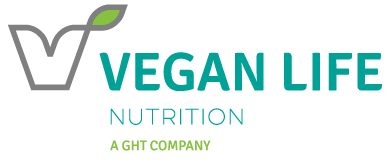Coming out as a vegan to your family and friends
In the end, what and how you eat is entirely your decision. But it can be hard when people close to you are uninformed and skeptical about veganism. There are so many misconceptions surrounding eating a plant-based diet that some people choose to stay in the vegan closet at the beginning. They operate under the radar by secretly avoiding animal byproducts rather than announcing their commitment to going meat-free.
Hiding your lifestyle can be difficult and isolating, so coming out as a vegan is a necessity. Before making this announcement, prepare yourself for the inevitable questions regarding why you’ve made the choice to eat vegan. For instance, talk about your feelings regarding animal rights without making the other person defensive about the fact that they eat meat.
Inform them of all of the health reasons for eating a plant-based diet. “Plant-based diets are low in saturated fat, free of cholesterol and rich in fiber, vitamins, minerals and antioxidants.”[1] Educating others on the benefits of being vegan is the best way to allay their fears and correct their misconceptions.
Why there is a vegan closet
If you’re a young person, one of the biggest hurdles is getting your parents on board. Don’t be surprised if they write your new lifestyle choice off as a phase. The great majority of people in their generation were raised eating meat, and they believe it’s the only way to achieve good nutrition.
The way to debunk this theory is to educate yourself on how you can still get optimal nutrition without eating animal products. “Vegans and omnivores alike can get all the nutrients their bodies need, in the right balance.”[2] There are tens of thousands of excellent plant-based recipes online and in cookbooks that you can use to plan meals.
Show your parents that, with proper planning, you can substitute animal products with plant products and achieve the same nutritional goals.
They will accept your vegan lifestyle
Coming out as a vegan takes time and patience, particularly if you’re going vegan in college or still living at home. Your parents may remain skeptical for a while before fully accepting your choice. Some might even partake in subterfuge, like sneaking meat into food, but stick to your commitment to going meatless. They will come around once they see that you’re thriving on a diet that contains zero animal byproducts.
It’s also good to be aware of certain nutrients that can be lacking in a vegan diet, such as calcium and vitamins B12, K-2 and D3. Alhough it is possible to get these nutrients through plants, you can prevent a deficiency by taking supplements. “Although anyone can have low B-12 levels, vegans typically have a higher risk of deficiency as there are limited sources of this vitamin.”[3]
Vegan Life Nutrition offers a variety of vegan supplements that can help you maintain good health on a plant-based diet.
